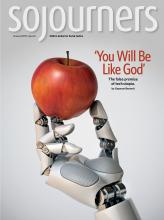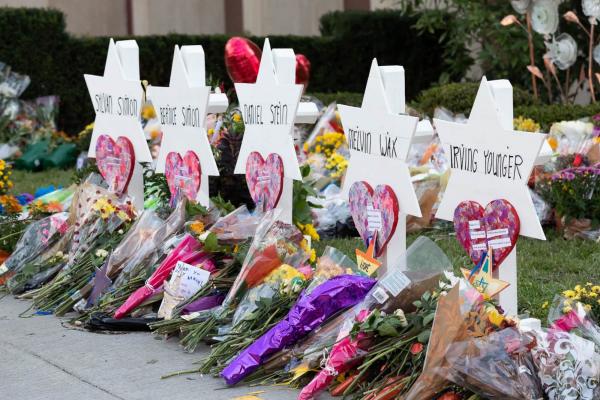JUST DAYS BEFORE the midterm elections, the Sojourners community reacted with shock, mourning, and fear at the horrific and murderous attack on the Tree of Life synagogue in Pittsburgh. Eleven congregants were killed while observing the Sabbath in the deadliest attack on the Jewish community in U.S. history.
That this evil act of anti-Semitic terrorism should take place here in the United States is deeply shocking. Yet both U.S. and world history teach us that the poison of anti-Semitism is very real and has deadly consequences. Anti-Semitism is one of the oldest and most persistent forms of bigotry alive in the world today, and Christians—who believe all human beings are created in the image of God—have a duty to name anti-Semitism and confront it at every turn, particularly given the shameful complicity of so many Christians in the Holocaust and other oppression and killing of Jewish people.
This hate crime capped off a horrific week of violence inspired by white supremacist ideology, in which racist and conspiracy theories were openly promulgated on the campaign trail by Donald Trump and amplified by prominent voices in right-wing media and dark web spaces. The attempted murder of critics of the Trump administration by mailing pipe bombs, the killing of two African Americans—Vickie Lee Jones and Maurice Stallard—in a grocery store after a failed attack on a black church, and the massacre of Jews in their synagogue—all were carried out by white supremacist nationalists, who are the greatest terrorist threats in America today.
In his closing election messages, Trump was unashamedly using a political strategy of fear and hate. The violence we have seen cannot be disconnected from the bigoted and hateful words of presidential political rhetoric. When the president proudly called himself “nationalist,” amid such hate and violence, the white nationalists, supremacists, and anti-Semites felt supported and emboldened.
Read the Full Article

